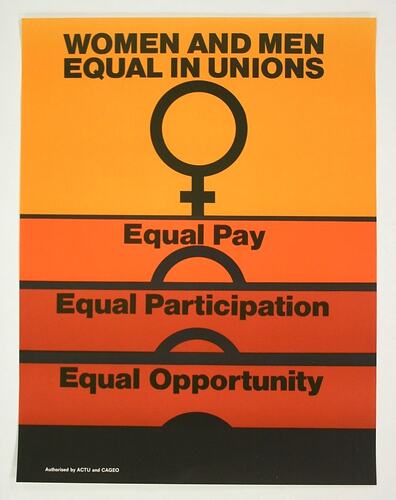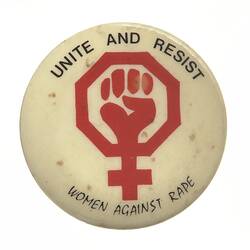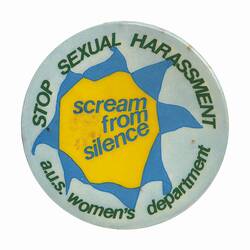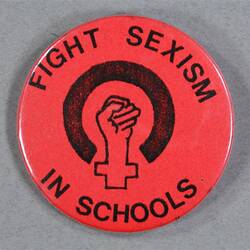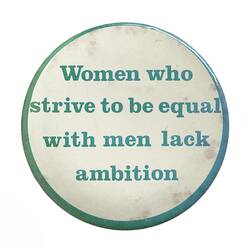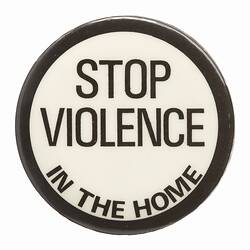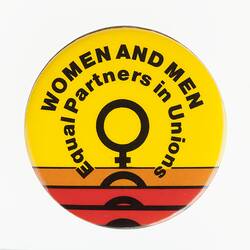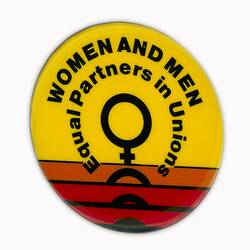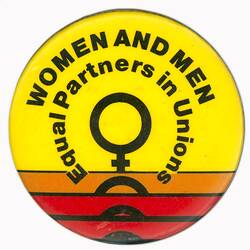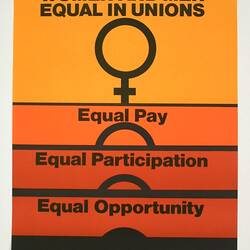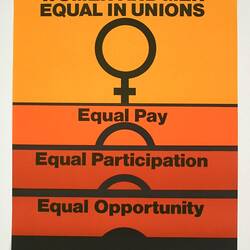The Women's Movement, which has also been known as the Women's Liberation Movement, the Feminist Movement and the Suffrage Movement, focusses on a number of issues such as reproductive rights (including abortion), domestic violence, maternity leave, equal pay, sexual harassment, and sexual violence. The goals and concerns of the Movement vary from country to country, depending on particular issues in those countries.
The history of feminist movements has been defined in terms of three 'waves', each dealing with different aspects of feminist issues. The first wave, in the 19th through early 20th centuries, dealt mainly with the issue of women's suffrage. The second wave (1960s-1980s) focussed on cultural and political inequalities. The third wave (1990s-present) is seen as both a continuation and a response to the perceived failures of the second wave.
The second wave of feminist activity began in the early 1960s and lasted through the late 1980s. It was triggered by a book written by American author Betty Friedan, The Feminine Mystique: 'Writing as a housewife and mother.Friedan described the problem with no name[,] the dissatisfaction of educated, middle class wives and mothers like herself who looking at their nice homes and families wondered guiltily if that was all there was to life was not new; the vague sense of dissatisfaction plaguing housewives was a staple topic for women's magazines in the 1950s. But Friedan, instead of blaming individual women for failing to adapt to women's proper role, blamed the role itself and the society that created it.' (Mary Beth Norton, A People & A Nation: A History of the United States).
The second wave encouraged women to consider their personal lives from a politicised perspective and themselves within a sexist structure of power. The slogan 'The Personal is Political', coined by American feminist activist and author Carol Hanisch, encapsulated the focus of the second wave. It second wave coincided with an outbreak of social movements struggling for the rights of other marginalised groups such as immigrants (particularly those from non-English speaking backgrounds), indigenous people, people of colour, lesbians and gay men. As the politics of discrimination were questioned, racism and patriarchy (male dominance in society) were identified as modes of exclusion of groups and individuals from citizenship, the feminists of the 1960s and 1970s gazed at the future full of optimism ('Women, Power and the Public Sphere', Anita Seibert and Dorota Roslaniec, http://www.abc.net.au/ola/citizen/women/women-power.htm)
In Australia, Germaine Greer's ground breaking 1970 book The Female Eunuch had a highly significant social impact. Greer argued that women do not realise how much men hate them, and how much they are taught to hate themselves. Greer's biographer Christine Wallace writes that one woman had to keep her copy wrapped in brown paper because her husband wouldn't let her read it. By March 1971 it had nearly sold out its second printing and had been translated into eight languages.
The Women's Movement brought change in Western society, including achieving women's suffrage, the right to initiate divorce proceedings and 'no fault' divorce; the right of women to make individual decisions regarding pregnancy (including access to contraceptives and abortion); and the right to own property.
Effectively, democratic processes now treat women as if they were the same as men, while in reality the lives of women are often drastically different. Feminism, while liberating many women from the domination of their partners, fathers or brothers, have not liberated them from the domination of social expectations. The laws governing women's bodies, voting rights, employment and education opportunities have changed, as did the expectations placed on women by society. Until the 1960s a woman was expected to be a wife and a mother, now she is expected to be everything else as well ('Women, Power and the Public Sphere', Anita Seibert and Dorota Roslaniec, http://www.abc.net.au/ola/citizen/women/women-power.htm)
References:
Wikipedia, 'Feminist Movement', http://en.wikipedia.org/wiki/Feminist_movement
Wikipedia, 'Germaine Greer', http://en.wikipedia.org/wiki/Germaine_Greer
'Women, Power and the Public Sphere', Anita Seibert and Dorota Roslaniec, http://www.abc.net.au/ola/citizen/women/women-power.htm
More Information
-
Keywords
-
Authors
-
Article types
